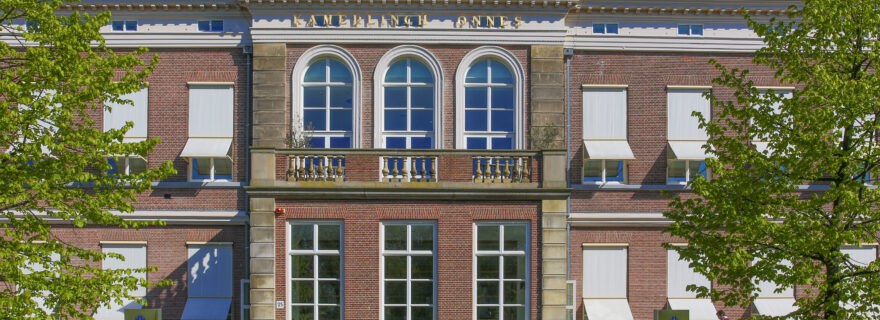Courts as an Arena for Societal Change
Please join our conference, Courts as an Arena for Societal Change, on 8 and 9 July 2022, at Leiden Law School, Leiden University, in the Netherlands.
More than 120 scholars from all over the world will share their findings and views on the subject. I look forward to meeting them, learning from them and gaining inspiration for further research. As chair of the conference, I hope the participants will enjoy attending the four plenary sessions, a choice of 29 parallel sessions with individual presentations, and 5 round table sessions. Check out the programme.
Courts as last resort
Why a conference about courts? Citizens and civil society organisations may feel that other institutions are failing them, whether due to political divisions, incompetence, state capture or for other reasons. Some even see courts as the only state institution capable of providing long-term solutions to major societal problems. International examples include rulings by the Court of Justice of the European Union on politically sensitive issues regarding the environment and the rule of law. Courts in various countries have issued judgments concerning the rule of law, migration, the tobacco industry and algorithmic processing of personal data by the government. During the conference, many presentations will discuss the remarkable case law on the reduction of greenhouse gas emissions, such as the Urgenda and Shell cases in the Netherlands. They will touch upon judicial reasoning on the role of institutions: acknowledging that governments and legislatures have a high degree of discretion in making the necessary political decisions, it is up to the courts to decide whether, in availing themselves of this discretion, the government and legislatures have remained within the limits of the law.
Bouche de la peuple
Other citizens and civil society organisations may hold an opposite point of view. This follows sharply from the first draft of what is said to be the majority opinion of the Supreme Court of the United States in Dobbs v. Jackson Women’s Health Organisation. In 1973, the Supreme Court in Roe v. Wade decided that the Constitution covered a right to privacy that protected a pregnant woman's decision whether to abort a pregnancy. By many, this decision was perceived as taking the issue of abortion away from the people and their elected representatives at the State level. Now the Supreme Court is about to overturn Roe v. Wade, taking the view that the Constitution does not confer a right to abortion and returning the authority to regulate abortion to the people and the politicians. Those who tend to respect a previous decision of the Supreme Court as a precedent may nevertheless applaud the upcoming decision overturning Roe v. Wade, at least according to the majority of the Supreme Court. In the first draft, the Justices refer to several societal changes: attitudes about the pregnancy of unmarried women have changed drastically; States have increasingly adopted ‘safe haven’ laws, which generally allow women to ‘drop off’ babies anonymously; and that a woman who puts her new-born up for adoption today has little reason to fear that the baby will not find a suitable home. They also refer to claims that many people now have a new appreciation of fetal life; prospective parents who view a sonogram ‘typically have no doubt that what they see is their daughter or son’.
The conference
How to deal with this dichotomy? During the conference, we will look into the processes that cause citizens to take socially charged issues that are the subject of ongoing political and societal debates to the judiciary. We will seek answers to questions like: what roles do governments, parliaments and civil society play in these processes, what leads courts to render substantive decisions on these issues, or why do they refrain from doing so? We will assess how administrative, civil or criminal institutional procedures affect citizens’ possibilities for addressing highly sensitive societal and political issues in court and how courts are enabled to render decisions on these issues.
Multidisciplinary approach
The presentations will offer multiple perspectives, focusing on various specific themes, geographical and cultural differences, specific judicial organisations (international courts, constitutional courts, administrative, civil and criminal courts) and various academic disciplines (such as criminology, history, law, philosophy, political science, and sociology).
Sneak preview
In the coming weeks, as a sneak preview, several blogs will be published on the themes of the conference. We hope to welcome you in Leiden on 8 and 9 July 2022. Please register here.



0 Comments
Add a comment